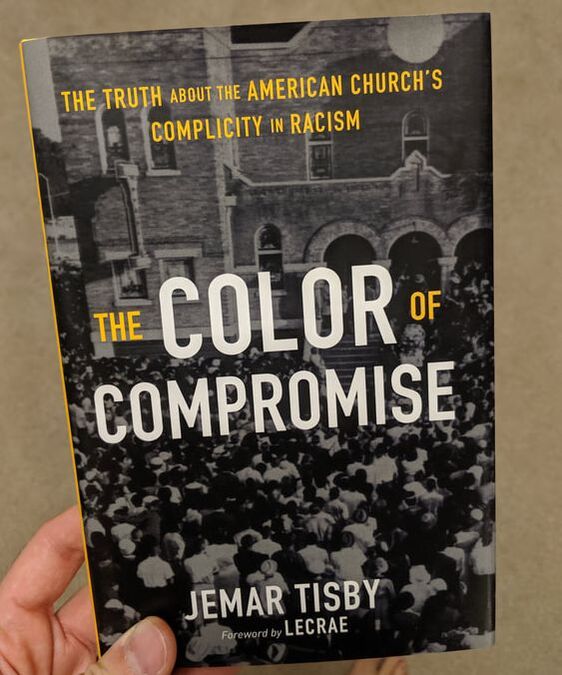|
About five years and two months ago, an event happened in the St. Louis area that incited something inside I did not know was there. I distinctly remember the news of Michael Brown's death spreading throughout the metro area, resulting in the acquittal of the officer who shot him right before Thanksgiving break. For the first time in my life (unfortunately, as I look back now), I was confronted with the reality of racism in America, and I did not know what to do with it.
I felt ignorant. I felt sad. I felt angry. I felt confused. What was the correct narrative in all the coverage? Where did I stand on issues of race of which I was so blindly unaware? These questions began to gnaw deep inside of me for the next couple of years as I led some of my students through difficult conversations about how to process the aftermath of the Ferguson protests, even as I did not know the answers to my own questions. Two years later, we were facing the most divisive and hateful season of election campaigning I had ever witnessed. Racial tensions were even higher than before, people were (and still are) getting angry about football players taking a knee, and my own feelings of discontent, unease, and anger were overwhelming me. Mostly, I felt helpless to face a problem that seemed hopeless and unfixable. I got to the point where I had to make an action step. I had heard enough podcasts dancing around the topic of racial tension in America, and I had heard the names of a few authors worth checking out, so I did what I often do when confronted with a problem, I turned to books. Books provided a way for me to engage with authors from the Black community and learn from a perspective I minimally encountered for 30+ years. One of those books has so profoundly impacted me that I have to share some thoughts about it. Thanks to my role as a volunteer in my local church's bookstore, every year I can complete training and get a voucher for some free books. I had heard about The Color of Compromise through some other media outlets and discovered that it was available with my free book voucher. The decision was a no-brainer. The Color of Compromise by Jemar Tisby is primarily a survey of the American church's history with racism and the various levels of complicity it has exhibited beginning with the Colonial era and leading up to the present day. Much of the history in the book was not new to me, but what struck me as the most profound was the often overlooked moderate Christians. To sum it up, one of the theses of the book was that the lack of action on the part of moderate Christians and churches throughout history actually served as complicity in the propagation of racist social structures and ideology. Unfortunately, I resonated with that. Tacit complicity was part of my story, and I had never been aware of it until recently. To add to that, several other experiences in my life the past two years have led me to an understanding of my own privilege. With all of this knowledge, I could not keep silent anymore. Toward the end of the book, Tisby has a chapter about racial tension in our present world, and he gives some practical suggestions about how to address the "What do I do" question I have been asking the last five years. On pages 194-197, He gives the acronym ARC (Awareness, Relationships, Commitment) as a system for racial justice. I have been in the Awareness category for a couple years now, but I wanted to take another step. While talking about Commitment on p. 196, Tisby says "write a blog post." When I read those words I had that uncomfortable feeling you get when you know you need to do exactly what you just read or heard, but you are a little scared. Yeah, that one. So, here is that post. I have been sitting on it for a few months now, hemming and hawing about putting off writing it, knowing that not everyone might agree with some of the ideas in the post, but also knowing that I cannot keep silent in the conversation. If reading The Color of Compromise taught me anything, I am not ok with being complicit with racism, and I challenge all of my friends and family, in the church and outside the church to stop being passive and to confront some ideas about their own privilege and the privilege of the American church. If you want some more recommendations of media to check out regarding the topic of racism in church circles, check out the book I'm Still Here: Black Dignity in a World Made for Whiteness by Austin Channing Brown and the podcast The New Activist, which is produced by International Justice Mission and includes episodes on a variety of justice and slavery topics, including race. I am also more than happy to engage further in conversation and would love to hear resources you are currently exploring. Let's keep this a conversation that the church stops disengaging or ignoring altogether.
1 Comment
|
AuthorI love my family and this is the place to find all of the adventures we experience. Archives
March 2024
Categories
All
|

 RSS Feed
RSS Feed